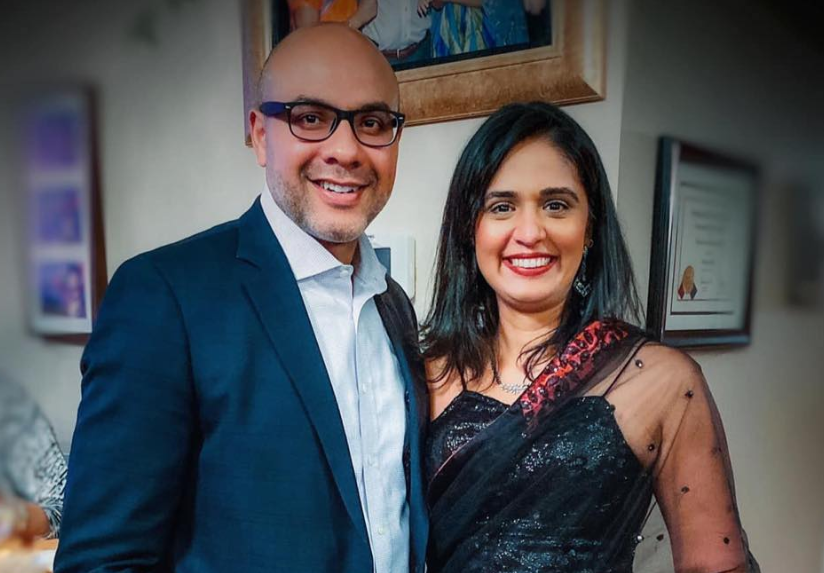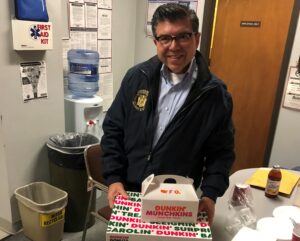Mehta Ties Bucco to President Who Doesn't Wear a Mask

The ads and mailings in LD-25 are pretty nasty and biting, but you couldn't tell that from Friday night's debate among all four candidates.
State Sen. Anthony M. Bucco, his Democratic opponent, Rupande Mehta, and the two Assembly

candidates, GOP incumbent Aura Dunn and Democrat Darcy Draeger, discussed issues for an hour each in a mostly courteous virtual debate sponsored by the Morris County Leagues of Women Voters and the Morristown NAACP.
League debates tend to be pretty rigid, which eliminates the give-and-take that can give politics life.
There was another problem. The Senate debate went off at 6 p.m. and the Assembly candidates appeared at 8 p.m. But the questions were virtually identical, so if the Assembly candidates watched the Senate debate, they had a good inkling of what was to come.
That said, the Senate matchup between Bucco-Mehta was by far the most contentious.
Mehta got a zinger in during her opening statement when she said the
Senate is a job to which one should be "elected," not "inherited."
This was a clear reference to the fact Bucco was appointed to the Senate after the death last year of his father, Sen. Anthony R. Bucco.
The younger Bucco ignored that one, but he used his closing statement to question Mehta's public service commitment. He said Mehta was named to an advisory group in her hometown of Denville, but missed an overwhelming majority of the meetings.
Mehta delivered her closing statement after Bucco, but said nothing about her attendance record.
The pandemic created the only thing close to a spark.
Mehta noted that Bucco supports a president "who doesn't wear masks" and who doesn't seem to take the virus seriously.
"I wear a mask and I encourage everyone around me to wear a mask," said the senator, pointing out that his mother, who he sees regularly, is in her eighties. "Nobody is more cautious than I am."
Still, Mehta insisted that Bucco had been a strong advocate for "opening up" the state more quickly.
The senator responded that businesses need a "little more leeway."
Bucco took credit for working with the state to get $7 million in CARES money for Morris County. There was some political irony here.
Rosemary Becchi, the local Republican congressional candidate, has insisted more than once that the county never got any CARES money.
Moving back to a state issue of some importance, all four candidates were asked about incorporating K-8 school districts into larger K-12 districts to save money. The district has a number of towns that operate only K-8 districts.
Both Assembly candidates said they had to study the idea; the Senate candidates were not gung-ho about it either, although Mehta talked about consolidating administrative functions.
Anyone who has followed state politics for awhile observes that one reason property taxes are so high is because New Jersey has so many municipalities and school districts. Consolidating many of these small towns and districts probably would be a great idea. But it is also something many lawmakers and even candidates don't want to touch.
While the Assembly debate was a very polite affair with a lot of agreement between the candidates, Draeger did use her closing statement to call Dunn a "partisan ideologue."
Republicans are running a TV commercial that criticizes Draeger for using a farmland assessment to lower her property taxes, but no questions were asked about that and Dunn didn't bring it up.
But Dunn offered a nice historical touch when she said she wanted to model herself after Millicent Fenwick, a former congresswoman from the region who was called the "conscience of Congress" by Walter Cronkite.





